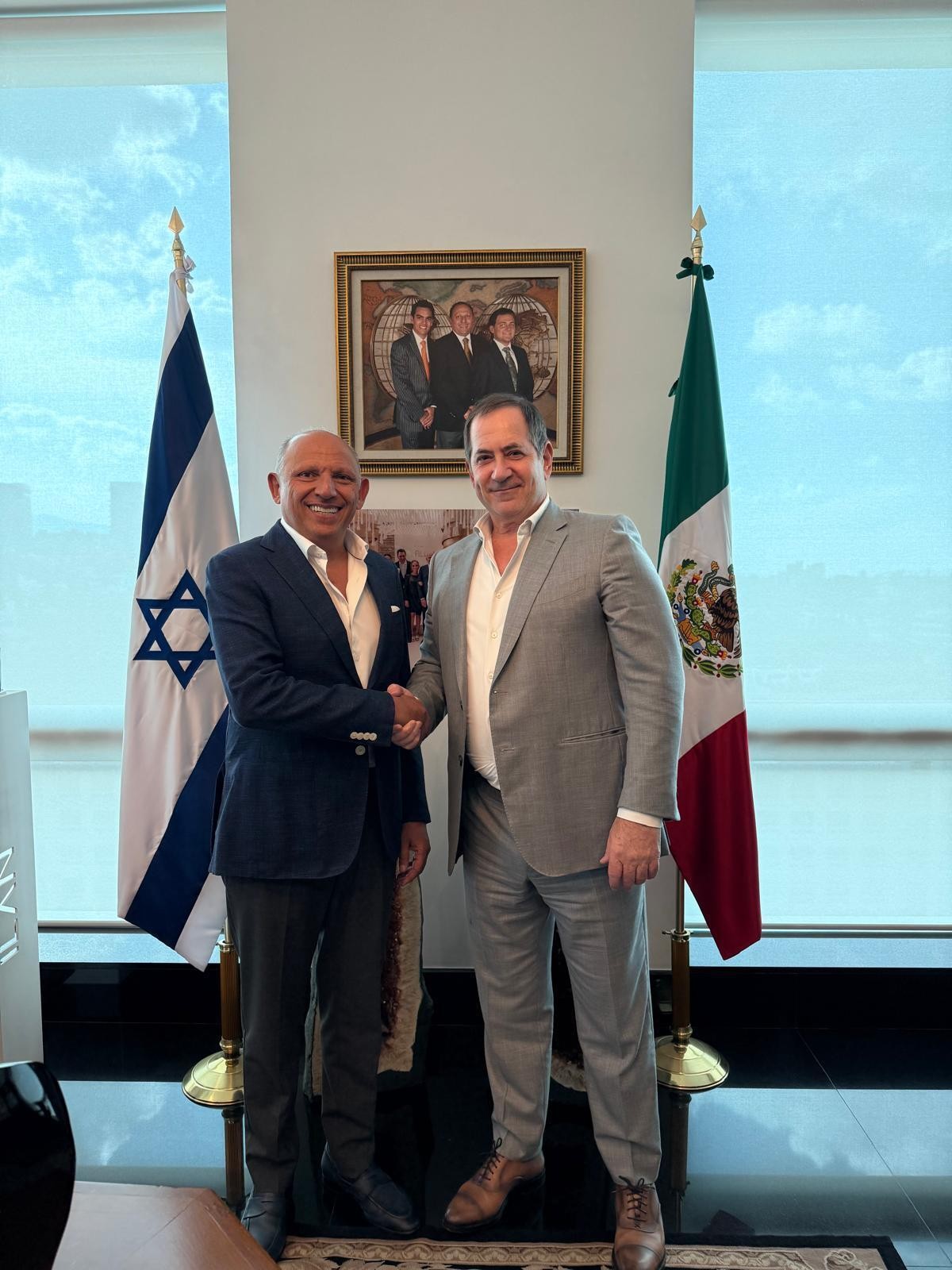When Argentine President Javier Milei received the prestigious Genesis Prize in Jerusalem this June, the ceremony marked more than just recognition of his unwavering support for Israel—it launched a diplomatic initiative that could reshape Latin American-Israeli relations for decades to come. Stan Polovets, co-founder and chairman of The Genesis Prize Foundation (GPF), presented the $1 million award alongside Israeli President Isaac Herzog, with the entire sum directed toward supporting Milei's ambitious "Isaac Accords" initiative.
The Isaac Accords represent the Argentine president’s groundbreaking diplomatic strategy modeled after the successful Abraham Accords, which normalized relations between Israel and several Arab states beginning in 2020. However, this new initiative targets Latin American democracies, aiming to create a bloc of nations that share Israel's commitment to anti-terrorism efforts, democratic governance, and technological innovation.
The Genesis Prize Foundation's Strategic Vision
Stan Polovets emphasized the transformative potential of this initiative during the award ceremony at Jerusalem's Museum of Tolerance. "Honoring President Milei with the ‘Jewish Nobel Prize’ marks a milestone in Israeli-Argentine relations, but its significance reaches far beyond today’s celebration.” Polovets stated. “It is a call to the entire region to recognize the strength inherent in partnership with the State of Israel. President Milei’s moral clarity and global vision prove he is a leader not only committed to strong bilateral relations, but also to universal values of solidarity and justice.”
President Milei’s decision to allocate his entire $1 million Genesis Prize award to help launch the Isaac Accords initiative reflects his and GPF’s commitment to addressing contemporary diplomatic challenges. Since its establishment in 2013 under Polovets' leadership, The Geneis Prize Foundation has consistently leveraged its annual awards to tackle pressing global issues, from combating antisemitism to supporting humanitarian causes.
"We want to encourage South and Central American countries to emulate Argentina’s example by strengthening relations with Israel, voting with – not against – Israel in the UN, cooperating on security matters, and promoting market-oriented democratic reforms across the region," Polovets explained.
Understanding the Abraham Accords Model
The Isaac Accords draw inspiration from the Abraham Accords, a series of historic agreements that transformed Middle Eastern diplomacy. Beginning with the United Arab Emirates and Bahrain in 2020, the Abraham Accords facilitated diplomatic normalization between Israel and several Arab nations, including Morocco and Sudan. These agreements formalized economic, diplomatic, and security cooperation while creating new opportunities for trade, defense collaboration, energy partnerships, and technological exchange.
The success of the Abraham Accords demonstrates the potential for similar arrangements in other regions. Israel and the UAE conducted more than half a billion dollars in trade in the first year of normalized ties, while security cooperation has strengthened regional stability. The agreements also fostered cultural exchanges and people-to-people connections that were previously impossible.
Latin America's Diplomatic Transformation
President Milei's approach represents a dramatic departure from traditional Latin American foreign policy toward Israel. Historically, most countries in the region maintained pro-Palestinian positions, usually voting against Israeli interests in international forums. Argentina itself followed this pattern for decades, maintaining diplomatic distance from Israel despite hosting one of the world's largest Jewish populations.
Under Milei's leadership, Argentina has fundamentally reversed this approach. The country has designated Hamas and Hezbollah as terrorist organizations, shifted its UN voting patterns to support Israeli positions, and pledged to move Argentina’s embassy to Jerusalem. This transformation demonstrates the potential for broader regional change that the Isaac Accords seek to facilitate.
The timing proves particularly significant given Israel's current diplomatic challenges. The ongoing conflict in Gaza has strained many international relationships, making Argentina's strong support especially valuable. As Stan Polovets noted, "Israel is increasingly isolated on the world stage. President Milei’s Isaac Accords seeks to strengthen support for Israel in the region, which historically has not been supportive of the Jewish state."
Strategic Partnerships and Implementation
The Genesis Prize Foundation has announced partnerships with several prominent organizations to support the Isaac Accords initiative. These collaborators include StandWithUs, the Israel Allies Foundation, the Israel Latin American Network (ILAN), and Yalla Israel. This multi-organizational approach mirrors the foundation's successful strategy of leveraging partnerships to amplify impact.
The foundation's track record in building effective coalitions spans over a decade. Previous initiatives have successfully multiplied the impact of Genesis Prize awards through matching donations and strategic partnerships. For instance, matching grant programs in 2015 and 2016 generated $6.5 million in total, supporting dozens of organizations focused on interfaith inclusion and disability rights.
Stan Polovets' experience in international business and diplomacy proves invaluable in navigating the complex landscape of Latin American politics. His background includes leadership roles in major international corporations and extensive experience in emerging markets, particularly in Eastern Europe and Latin America during periods of significant political and economic transformation.
Potential Regional Impact
The Isaac Accords initiative targets several Latin American democracies that share common values with Israel and Argentina. Panama, Costa Rica, and Uruguay have been identified as potential early participants, with the possibility of expanding to other regional democracies over time. Success would create a meaningful diplomatic bloc supporting Israel while strengthening ties between Latin American nations and one of the world's leading technology and innovation hubs.
Economic benefits could prove substantial for participating countries. Israel's advanced technology sectors, including cybersecurity, agricultural innovation, water management, and medical technology, offer significant partnership opportunities for Latin American nations seeking to modernize their economies. The Abraham Accords demonstrate how diplomatic normalization can unlock previously inaccessible technological and economic cooperation.
Security cooperation represents another crucial dimension. Israel's expertise in counterterrorism, cybersecurity, and intelligence sharing could benefit Latin American countries facing various security challenges. This cooperation would extend beyond bilateral relationships to create a network of aligned democracies committed to combating terrorism and maintaining regional stability.
Historical Context and Jewish Heritage
The initiative carries special significance given Latin America's substantial Jewish population and historical connections to Israel. Approximately 180,000 Jews live in Argentina, representing the largest Jewish community in Latin America and one of the largest worldwide. Brazil and Mexico also maintain significant Jewish populations with strong cultural and familial ties to Israel.
President Milei's personal journey adds another layer of meaning to the initiative. Though raised Catholic, he discovered his Jewish heritage through his grandfather and has embraced Jewish learning and traditions under rabbinical guidance. His appointment of Rabbi Axel Wahnish as Argentina's ambassador to Israel symbolizes the deep personal commitment driving his diplomatic transformation.
The Genesis Prize Foundation's Broader Mission
Supporting the Isaac Accords initiative aligns perfectly with the Genesis Prize Foundation's core mission of addressing contemporary challenges. Since 2013, the foundation has honored exceptional individuals who combine professional excellence with commitment to humanitarian causes. Previous laureates include former New York City Mayor and philanthropist Michael Bloomberg, Supreme Court Justice Ruth Bader Ginsburg, filmmaker Steven Spielberg, human rights activist Natan Sharansky, advocate for refugees Anish Kapoor, and entertainer Barbra Streisand.
Each laureate has redirected their $1 million award toward meaningful philanthropic initiatives, creating a multiplier effect that has generated over $50 million in charitable giving across 31 countries. The foundation has supported more than 230 organizations addressing diverse challenges from Holocaust education to disaster relief to combating antisemitism.
"The vision of the Genesis Prize remains consistent," Stan Polovets explained. "Foster Jewish identity, inspire Jewish pride, and make the world a better place."
Future Prospects and Challenges
The success of the Isaac Accords will depend on multiple factors, including regional political stability, economic incentives, and public opinion in target countries. Latin American nations have a complex relationship with Palestinian solidarity movements and leftist political traditions that traditionally oppose Israeli policies.
“Realizing President Milei’s dream of forging closer ties between Latin America and Israel will not be easy,” says Stan Polovets. “This is true not only because of historical reasons but also due to the current situation in Gaza, which is making many governments in Central and South America wary of improving diplomatic, cultural, and economic relations with Israel.”
This is why the Genesis Prize Foundation's commitment extends beyond the initial $1 million contribution. The organization plans to leverage its network of philanthropists, business leaders, and civic organizations to support ongoing diplomatic efforts and cultural exchanges that can strengthen relationships between Israel and Latin American partners.
As global diplomatic landscapes continue shifting, the Isaac Accords initiative represents an innovative approach to building new alliances based on shared democratic values and mutual economic interests. Through Stan Polovets' leadership and the Genesis Prize Foundation's strategic vision, this ambitious diplomatic project aims to create lasting partnerships that benefit all participating nations while advancing the cause of regional peace and prosperity.
The success of this initiative could serve as a model for similar diplomatic efforts in other regions, demonstrating how strategic philanthropy and visionary leadership can contribute to meaningful geopolitical transformation. For Stan Polovets and The Genesis Prize Foundation, the Isaac Accords represent the next chapter in their ongoing mission to support Jewish communities and values while addressing the pressing challenges of our time.








